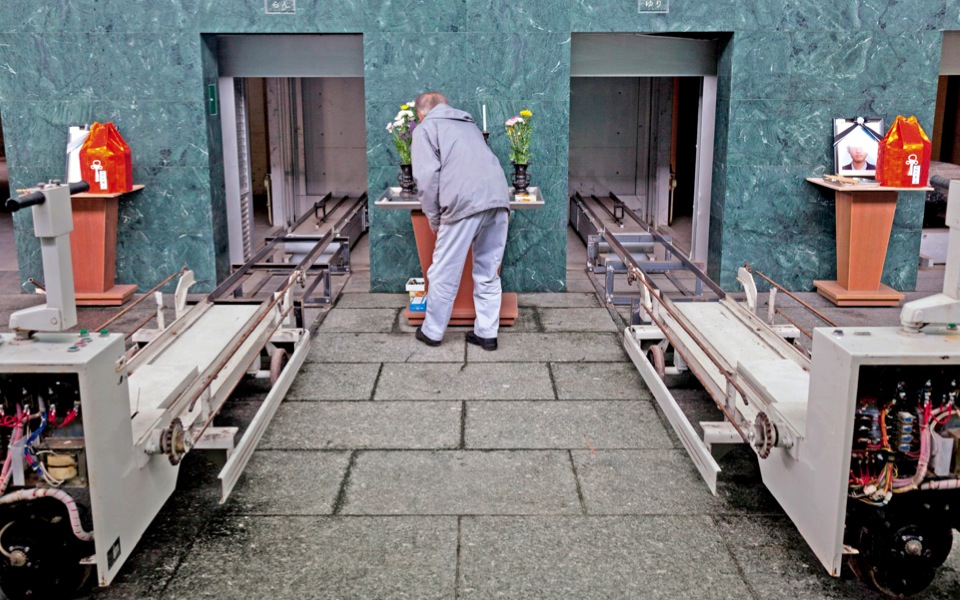Cremation, faith and the Greek Orthodox Church

“Our people have a certain faith. And the Church has a duty to safeguard it and assure that we’ll still hold burials. If someone wants to be cremated, that’s their prerogative. They need to be free,” Archbishop Ieronymos told Mega TV on the weekend.
The issue came back to the forefront of public debate following the death a few weeks ago of actor Minas Hatzisavvas, who had wanted his body to be cremated. In truth, the issue comes up all the time; we’re just not aware of it in the public sphere because it concerns everyday people. But many of us have a tale to tell of a sad (and expensive) trip to Bulgaria or Germany to have a loved one cremated. If I close my eyes and think about it, I don’t want to be cremated; to be more precise, I don’t really think about the issue, or I avoid thinking about it, because I’ll no longer be there so I’m not really concerned about what will happen to my body. I find the thought of it being donated to science more interesting, but these are strictly personal matters and I am certainly not speaking on behalf of pro-cremation activists.
It simply seems hypocritical of the Greek Orthodox Church to condemn cremation yet allow disinterment. This is ostensibly allowed for practical reasons, for families who don’t own a grave and need to remove the remains of their relative once the three-year lease on a rental is up so they can be stored in an ossuary or a permanent burial site. If a relative does not see to the removal and storage of the remains, these will basically end up in a dump.
I will not go into the gruesome details. But I am one of hundreds of thousands of Greeks who have had to witness a disinterment (that of my mother) and the spectacle felt like nothing short of grave robbery and legally endorsed indecency against the deceased. How can the Church shut its eyes to such an extreme and macabre process? The horror of disinterment does not safeguard any sense of faith. Quite the opposite – it can make you even more cynical, even more drawn to a sense of nihilism, where the phrase “All is dust, all is ashes, all is shadow” of the awe-inspiring Greek Orthodox funeral service seems like a bad joke.
The burning of the dead has been frowned upon by Greek clerics since a long way back because it is associated with all manner of cults, modern-day pagans, agnostics and atheists. They have their rights, of course – even the archbishop said so. Mostly, it is regarded as a bizarre notion that has been imported from the West, which is ridiculous of course, given how many Eastern religions use cremation. This is why while cremation has been legal in Greece for years, clerics have rallied their faithful in at least two cases against plans to build a crematorium.
The more prosaic argument is that reactions to cremation actually stem from the so-called “funeral industry.” On the one hand, the idea of cremation has already been embraced by many pious Orthodox Christians and, on the other, the practice in no way precludes a funeral service or mass, or any of the other privileges afforded by funeral homes. And the remains can be buried after cremation.
Faith is not compromised by progress but by the rigor mortis of one of the country’s most powerful institutions.



